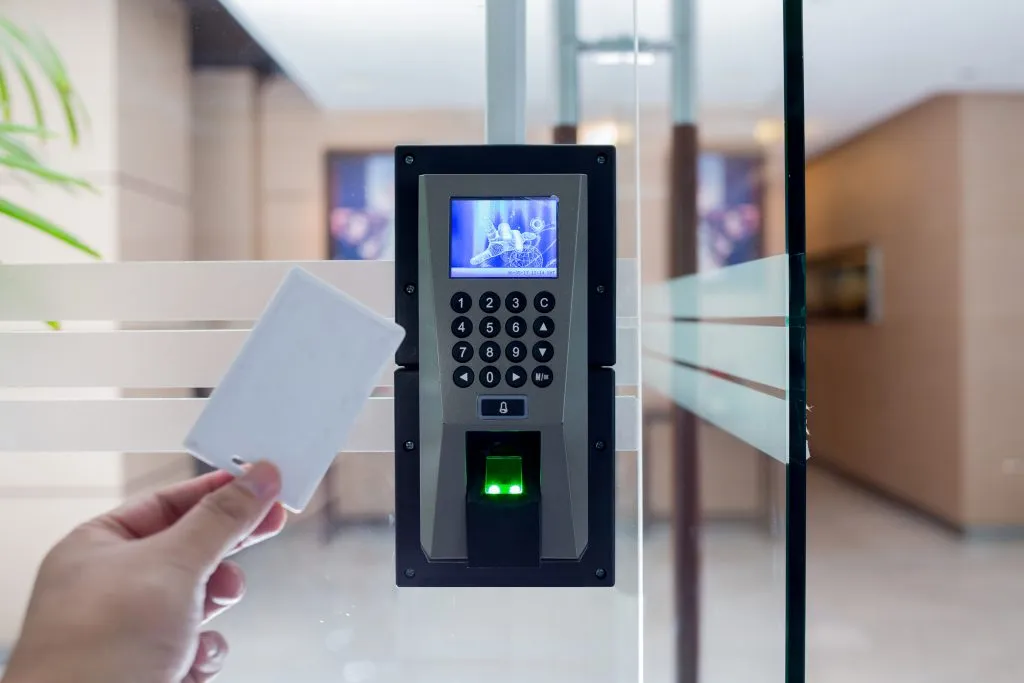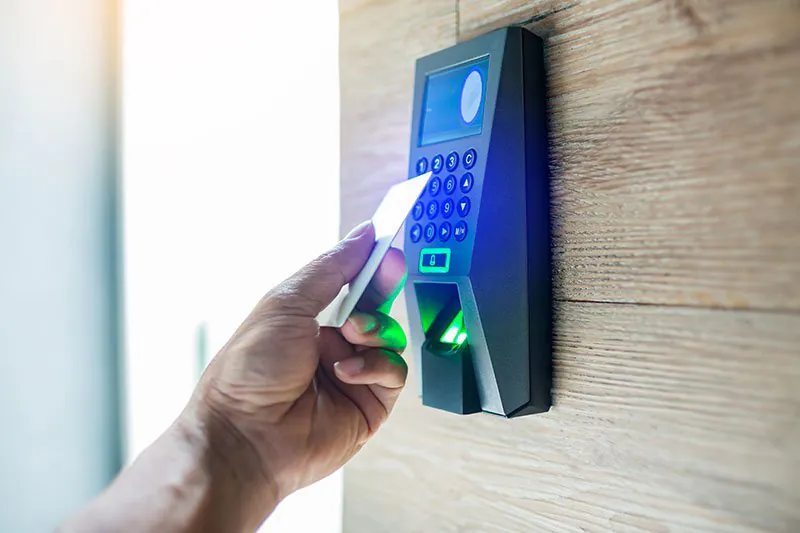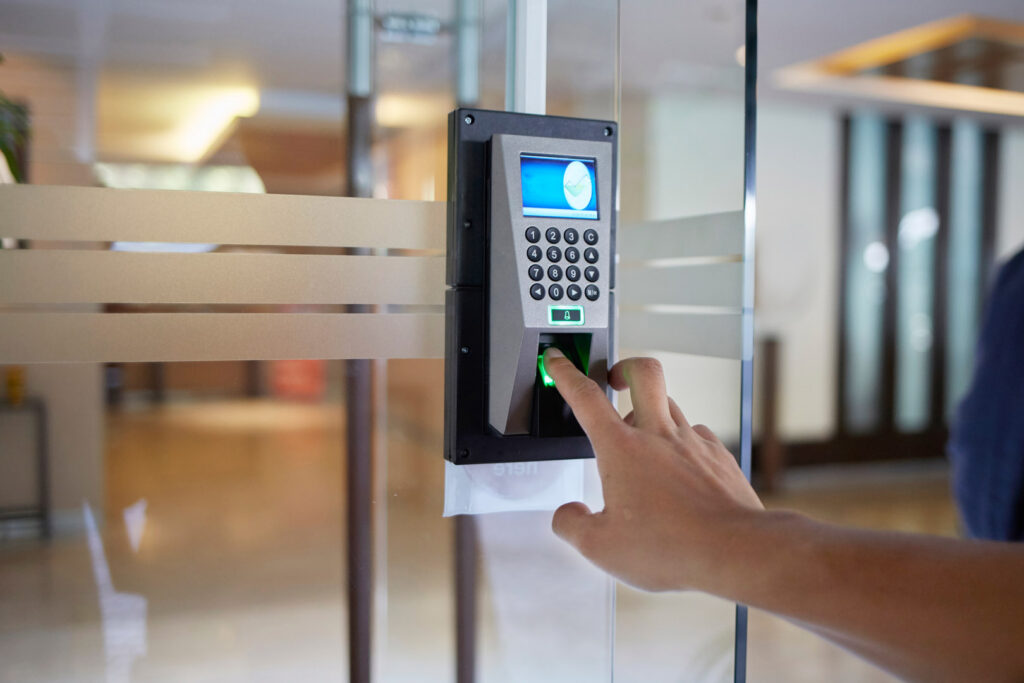In an increasingly connected world, the need for robust security measures has never been more critical. Access control systems are at the forefront of property security, providing a sophisticated means to manage entry and protect assets. In Sydney, where urban living and commercial activities thrive, implementing smart entry solutions is essential for both residential and business properties. This article delves into the various aspects of access control systems, their benefits, types, and how they can enhance security in Sydney.
Understanding Access Control Systems
Access control systems are security solutions designed to manage who can enter or exit a property. They can be as simple as a traditional lock and key or as advanced as biometric scanners and smart locks. The primary purpose of these systems is to restrict access to authorised individuals while keeping unauthorised persons out. This is particularly important in urban environments like Sydney, where the density of population and commercial activities necessitates heightened security measures.
Access control systems can be categorised into three main types: physical access control, logical access control, and administrative access control. Each type serves a unique purpose and can be tailored to fit the specific needs of a property.
Physical Access Control
Physical access control involves the use of hardware devices to restrict entry to a physical space. This includes locks, gates, turnstiles, and security guards. In Sydney, many businesses and residential complexes are adopting electronic locks and keycard systems to enhance security. These systems allow for easy management of access rights and can be programmed to grant or revoke access at any time.
One of the significant advantages of physical access control is the ability to monitor entry and exit points. Many modern systems come equipped with features such as audit trails, which log every access attempt, providing valuable data for security assessments.
Logical Access Control
Logical access control pertains to digital environments, regulating who can access information systems and networks. This is particularly relevant for businesses that handle sensitive data. In Sydney, companies are increasingly investing in logical access control systems to protect their digital assets from unauthorised access and cyber threats.
These systems often utilise passwords, PINs, and biometric data to authenticate users. With the rise of remote work, logical access control has become essential in ensuring that employees can securely access company resources from various locations.
Administrative Access Control
Administrative access control focuses on the policies and procedures that govern access to resources. This includes defining roles and responsibilities, establishing security protocols, and conducting regular audits. In Sydney, organisations are recognising the importance of having a comprehensive administrative access control plan to mitigate risks and ensure compliance with regulations.
By implementing clear policies, businesses can effectively manage access rights and ensure that only authorised personnel can access sensitive areas or information. This proactive approach helps in preventing security breaches and maintaining a secure environment.
Benefits of Access Control Systems
The implementation of access control systems in Sydney offers numerous benefits, making them an invaluable investment for property owners. From enhanced security to improved convenience, these systems provide a comprehensive solution to managing access.
Enhanced Security
One of the primary advantages of access control systems is the enhanced security they provide. By restricting access to authorised individuals, these systems significantly reduce the risk of theft, vandalism, and unauthorised entry. In a bustling city like Sydney, where crime rates can fluctuate, having a reliable access control system is crucial for safeguarding properties.
Moreover, many modern access control systems feature advanced technologies such as biometric authentication and facial recognition, further increasing security levels. These technologies ensure that only the right individuals can gain entry, making it exceedingly difficult for intruders to bypass security measures.
Convenience and Flexibility
Access control systems also offer unparalleled convenience for property owners and managers. With the ability to remotely manage access rights, property owners can easily grant or revoke access to individuals without needing to be physically present. This is particularly beneficial for businesses that require flexible access for employees, contractors, or visitors.
Additionally, many systems allow for temporary access codes or keycards, which can be issued for specific time frames. This feature is ideal for managing access for guests or service providers, ensuring that security is maintained without sacrificing convenience.
Cost-Effectiveness
While the initial investment in access control systems may seem significant, the long-term cost savings can be substantial. By reducing the risk of theft and damage, property owners can save on potential losses and insurance premiums. Moreover, the efficiency gained from streamlined access management can lead to increased productivity, particularly in commercial settings.
In Sydney, where property values are high, investing in access control systems can be a financially savvy decision. The peace of mind that comes with knowing that a property is secure is invaluable and can ultimately protect one’s investment.

Types of Access Control Systems
Access control systems come in various forms, each designed to meet specific security needs. Understanding the different types available can help property owners make informed decisions about which system is best suited for their requirements. Learn more about electronic Access Control: how it works and why it’s gaining popularity.
Keypad Entry Systems
Keypad entry systems are among the most common types of access control solutions. They require users to enter a numeric code to gain entry. These systems are relatively simple to install and can be used in both residential and commercial properties. In Sydney, many businesses use keypad entry systems for restricted areas, allowing for easy access management.
One of the significant advantages of keypad systems is the ability to change codes regularly, enhancing security. However, they can be susceptible to code sharing, which may pose a risk if not managed properly.
Card Access Systems
Card access systems utilise physical cards or key fobs that users swipe or tap to gain entry. These systems are widely used in commercial settings, such as office buildings and hotels, due to their convenience and scalability. In Sydney, many organisations are adopting card access systems to streamline entry for employees and visitors.
Card access systems can be integrated with other security measures, such as CCTV cameras, to provide a comprehensive security solution. They also allow for easy tracking of access, making it easier to monitor who enters and exits a property.
Biometric Access Systems
Biometric access systems are at the forefront of security technology, using unique biological characteristics such as fingerprints, facial recognition, or iris scans to authenticate users. These systems offer the highest level of security, making them ideal for sensitive areas in both residential and commercial properties in Sydney.
While biometric systems can be more expensive to install, their accuracy and reliability make them a worthwhile investment for those seeking enhanced security. Additionally, they eliminate the risk of lost or stolen access cards, as biometric data is unique to each individual.
Choosing the Right Access Control System for Your Property
When selecting an access control system for a property in Sydney, several factors should be considered to ensure that the chosen solution meets specific security needs.
Assess Your Security Needs
The first step in choosing an access control system is to assess the security needs of the property. Consider the level of security required, the number of access points, and the types of individuals who will need access. For instance, a residential property may require a simpler system compared to a commercial building with multiple entry points and varying access levels.
Consider Integration with Existing Security Measures
It is essential to consider how the access control system will integrate with existing security measures, such as CCTV cameras and alarm systems. A comprehensive security solution that combines various technologies can provide enhanced protection and peace of mind.
Evaluate Budget and Long-Term Costs
Budget is a crucial factor when selecting an access control system. While it may be tempting to opt for the cheapest solution, it is essential to evaluate the long-term costs associated with maintenance, upgrades, and potential security breaches. Investing in a reliable system may save money in the long run by preventing losses and reducing insurance premiums.

Conclusion
Access control systems are an integral part of modern security solutions, providing property owners in Sydney with the tools they need to protect their assets effectively. With various types of systems available, each offering unique benefits, it is essential to assess individual security needs and choose a solution that aligns with those requirements. By investing in smart entry solutions, property owners can enhance security, improve convenience, and ultimately safeguard their investments in an ever-evolving urban landscape.

